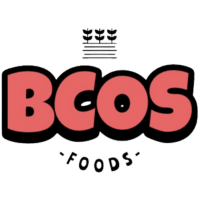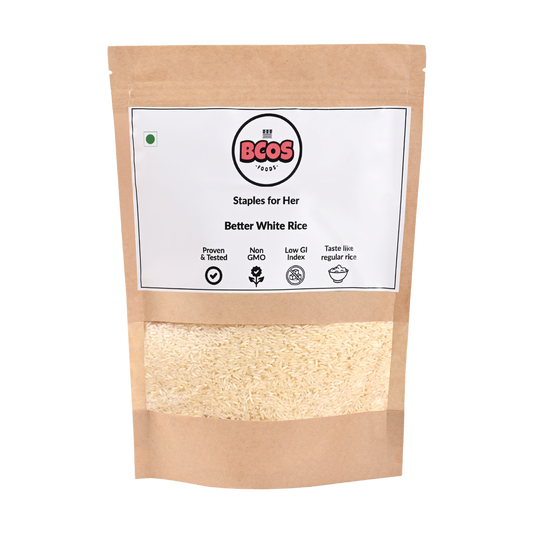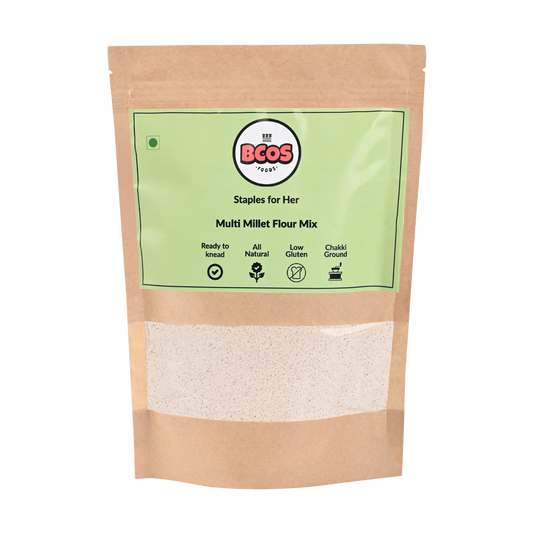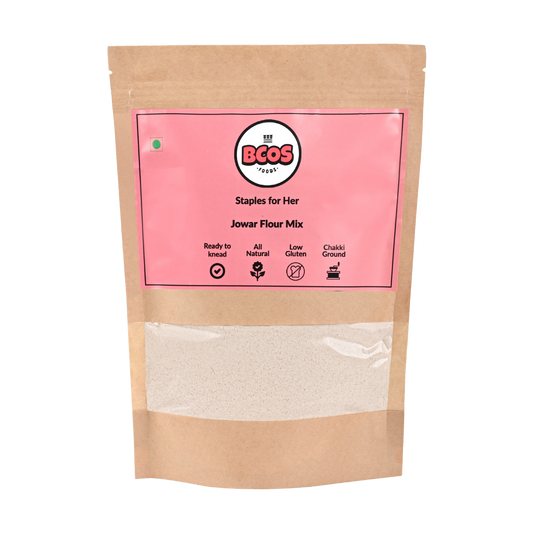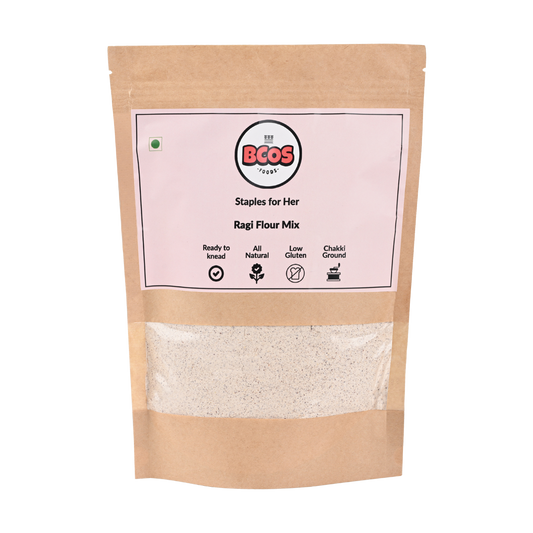Tracking your steps to complete 10, 000 a day? Clocking in your calories on a calorie calculator? Skipping a meal? Tried intermittent fasting, tried another diet…we’ve all been there, done that to lose weight.
All these diets have 2 things in common – being in a calorie deficit and being consistent! But for women with PCOS, things are a little different. Being in a calorie deficit isn’t always a solution. Wondering why? Let’s dig in..
COUNTING CALORIES ‘UHHH! MINUSSS’

Keto, Intermittent, Vegan. Low-Carb….all weight loss diets ultimately have the same approach – being in a calorie deficit. In other ways consuming less energy than you burn or CICO (calories in vs calories out).
While scientifically CICO is the key to losing weight, it doesn’t factor hormonal imbalances, insulin resistance, PCOS, and other health problems affecting metabolism. Unlike most women who immediately start burning fat for energy when they wake up, women with PCOS don’t. That’s because they’re programmed to save their energy instead.
Breaking it down: Women with PCOS have high levels of hormones such as insulin and cortisol. When this happens, it’s nearly impossible for the body to enter fat-burning mode. And the body holds on to every calorie and stores it as energy – remember ‘fight or flight mode’ explained here?’.
So, whether a woman with PCOS eats 2000 calories or 500 is irrelevant, they just don’t burn it as easily as other women. In fact, studies have also shown that long-term calorie restriction could slow down your metabolism and modify the way your hormones operate. Experts even say you should never go below 1,200 calories per day in your effort to drop weight. So, the CICO approach is definitely a huge ‘Minus’ for women with PCOS!
IT’S ALL ABOUT ‘GOOD FOOD, GOOD FOOD AND GOOD FOOD’!

The key ingredient for healthy eating habits for women with PCOS is blood sugar control.
But by counting calories, one can’t keep their blood sugar under control. That’s because when one starts counting calories, they may eliminate hormone balancing foods such as carbohydrates – potatoes, fats – avocados and nuts as well as certain fruits and starchy foods. But these are essential for reducing insulin levels as they provide fibre, slow down blood sugar levels after meals and keep you full longer.
EAT THESE FATS TO LOOK PHAT*
Having plenty of healthy fats in your diet may help you feel more satisfied after meals, as well as tackle weight loss and other symptoms of PCOS. As per a study featuring 30 women with PCOS, they compared a low-fat diet (55% carbs, 18% protein, 27% fat) to a higher-fat diet (41% carb, 19% protein, 40% fat) for 8 weeks. The higher-fat diet led to more fat loss, reducing belly fat than the lower-fat diet. While fats are calorific, healthy fats can expand stomach volume and reduce hunger. This may help you to eat fewer calories throughout the day. Foods like avocado, olive oil, coconut oil, and nut butters with a protein source can further increase the filling effects of meals and snacks.
*PHAT – pretty, hot and tempting!
FESTIVE SEASON, CAN’T STAY AWAY FROM ‘LADOO’?

While excess sugar is a contributor to insulin resistance and overall inflammation, it is not bad or wrong to indulge in your favourite dessert once in a while. To reduce excess sugar consumption watchout for ‘added sugars’ consumed per day. Balance your meals with all food groups. Pick lower glycemic foods and try healthy alternatives for your sweet cravings.
But don’t avoid sugar completely because you may end up binge eating lots of it later.
DON’T SKIP ‘GYM CLASS TODAY’

Exercising before means can amp-up your metabolism. And regular workouts, movements and exercises train your body to use up extra glucose stored in your body. This helps keep your insulin levels down. Every step counts, literally! Brisk walking, jogging, cycling or swimming are all great activities that help increase your body’s sensitivity to insulin. So keep moving.
We hope the above motivates you to wake up like ‘Poo’ from K3G every morning. And shift your focus from counting calories to staying ‘healthy’!
We offer personalised doctor and nutrition counselling to repair your overall health. Also, do checkout our tasty millet flour staples to take charge of your nutritional modifications for long term reproductive health management.
